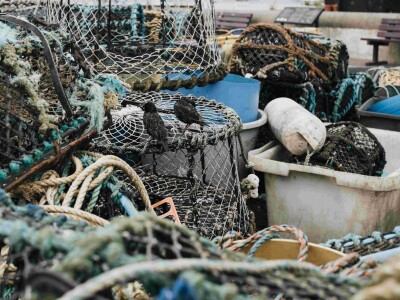WASHINGTON (Saving Seafood) - March 20, 2014 - Today, Oceana released a report and accompanying press release, Wasted Catch: Unsolved Bycatch Problems in U.S. Fisheries, which calls out nine U.S. fisheries for allegedly wasteful practices producing harmful levels of bycatch. But the report only tells half of the story.
Bycatch remains one of the top concerns of US fisheries management from coast to coast, and several prominent fisheries, aided by contributions from concerned members of the industry, government officials, and conservation groups, have made great strides in reducing bycatch and creating more sustainable marine resources.
The New England scallop fishery is one of the best examples of where collaborative efforts to reduce bycatch have yielded positive results. Since 2010, the fishery has partnered with the School for Marine Science and Technology (SMAST) at the University of Massachusetts Dartmouth to avoid one of the species most commonly caught as scallop bycatch, yellowtail flounder. The SMAST Yellowtail Bycatch Avoidance Program uses information provided by participating vessels to identify areas where yellowtail are sighted, and help the rest of the fleet avoid them. Almost 75 percent of the scallop fleet participates in the program, which the industry has helped fund since its inception. The scallop fishery has not exceeded its annual allocation of yellowtail flounder since the program began.
The fishery also partnered with the Coonamessett Farm Foundation to develop new scallop gear that prevents sea turtles from being caught and limiting the interactions between the turtles and the fishery. The resulting Turtle Deflector Devices have greatly reduced harmful interactions between turtles and scallop gear, and have won praise from several environmental groups, including Oceana. Last year, the sea scallop fishery was certified as sustainable by the Marine Stewardship Council.
Read the full story at Saving Seafood>>






